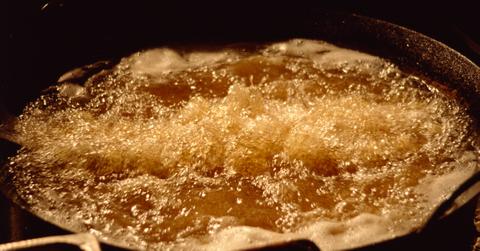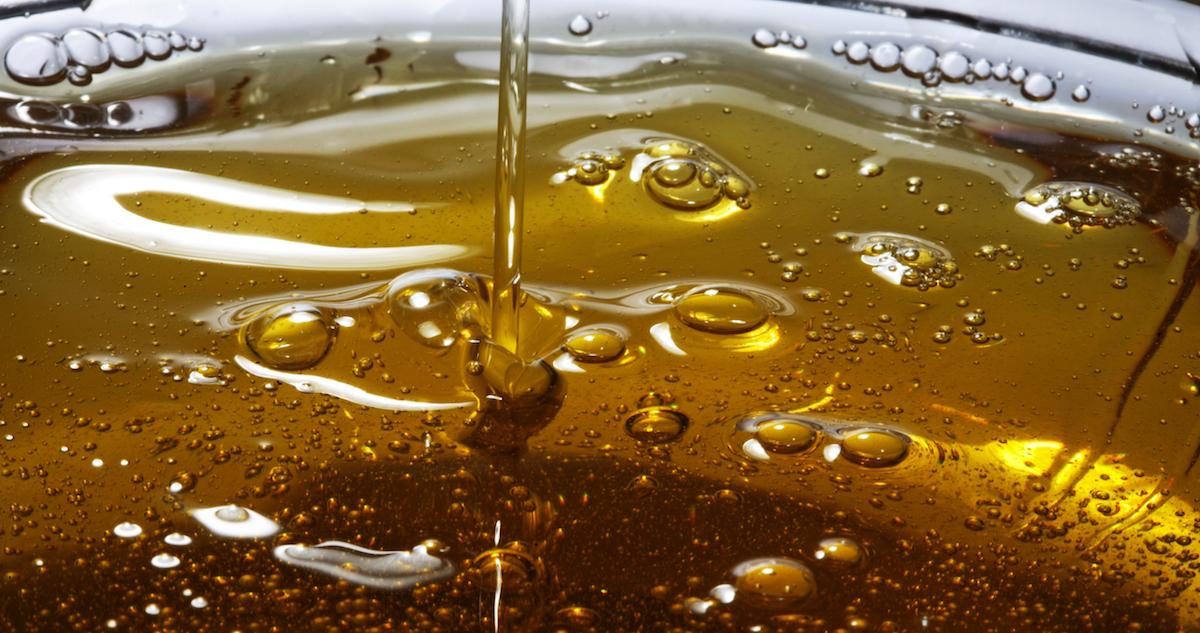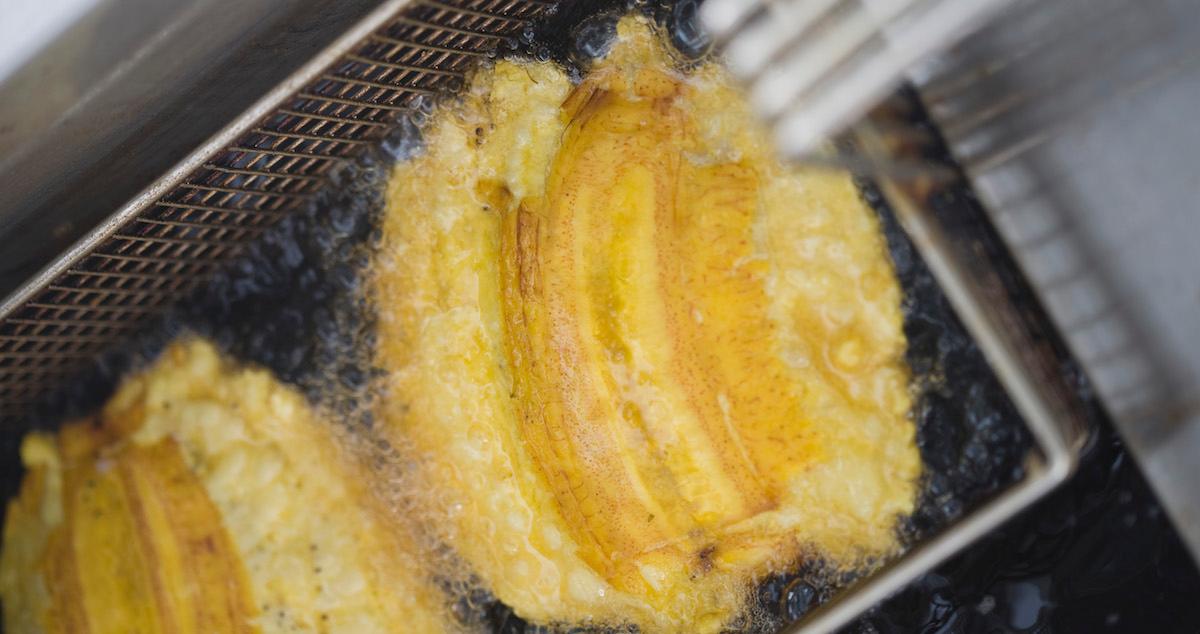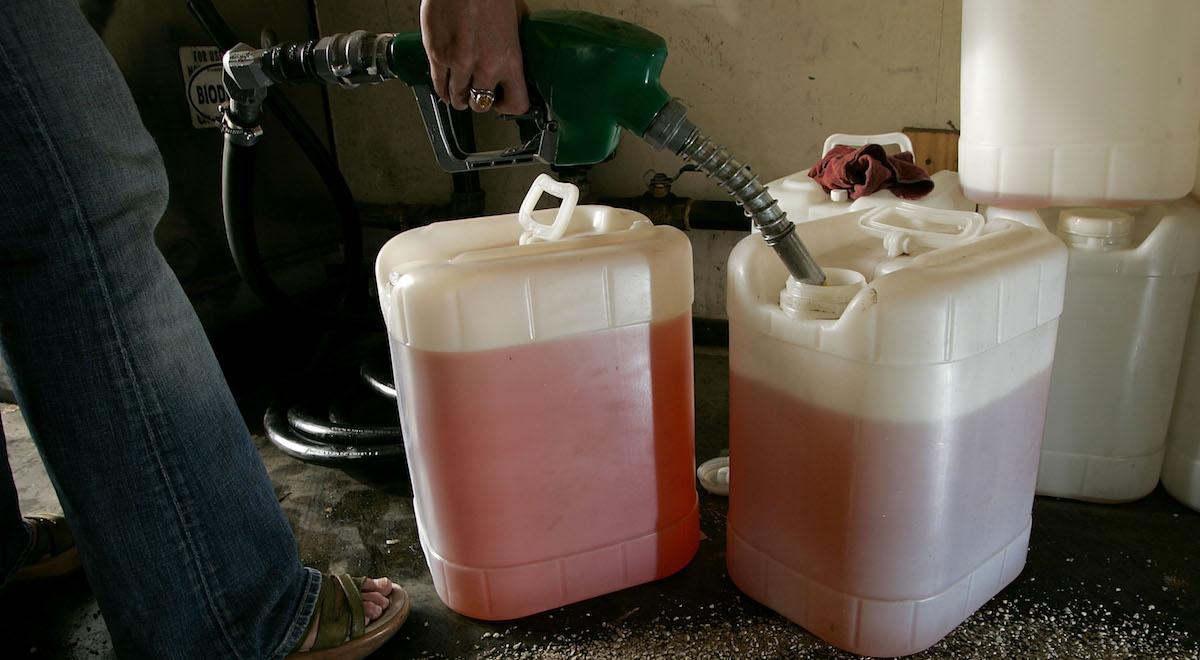The Safest and Most Eco-Friendly Ways to Dispose of Cooking Oil
Published July 29 2021, 11:28 a.m. ET

Everyone who cooks has their own way of disposing of cooking oil. Some stuff paper towels into a plastic bag and let them soak up the oil before tossing it in the trash, while others dump it down the drain. Some even toss it outside, in a continually scorched piece of dirt somewhere deep on their property. However, none of these methods are environmentally friendly, so we’re going to set the record straight with the best ways to dispose of cooking oil.

Let it cool.
The first thing to remember about disposing of cooking oil is that you can’t do anything with it when it’s still hot. No matter what type of cooking oil you’re using, make sure you let it cool before you handle it. This should not be something that we need to specify, but you might be surprised at how many people don’t know this.
Not only is cool oil safer in terms of handling, it’s also easier to work with. According to Green Citizen, putting your oil in the freezer until it solidifies will make it easier to transport. After that, you can put it into a non-breakable, sealable container and toss it in with your regular food waste.
Another way to render cooking oil a bit more solid and workable is to mix it with flour, sawdust, kitty litter, or some other absorbent material before sealing it up and throwing it away. Obviously, this method isn't ideal, as the more eco-friendly option is to recycle it.

You can recycle it — in some places.
Unfortunately, recycling cooking oil isn’t all that easy — though several companies collect restaurant waste oil, there aren’t many that collect and recycle home cooking oil. On top of that, not every municipality has a cooking oil recycling program. Nevertheless, according to Earth911, recycling options exist, and you can use their locator to find one once you’ve accumulated enough oil. If that fails, call your local fire department, as some collect or accept old cooking oil.
Re-use it.
Despite popular belief, cooking oil can be used multiple times before it goes bad, as long as it’s strained or filtered between uses. According to America’s Test Kitchen, oil that has fried breaded or battered foods has about three or four good uses, while oil that's used to fry something lighter and less messy like potato chips, probably has around eight good uses.
Bon Appetit’s process for saving and reusing cooking oil involves letting it cool, straining it through a fine-meshed sieve and/or cheesecloth, and storing it in a cool, dry place. Mason jars are good for this because they are both eco-friendly and able to seal in freshness. Be mindful of what you fried with the oil though — no matter how strained it is, oil tends to take on at least some of the flavors of whatever foods were fried in it.
Add it to compost.
If you keep a backyard compost pile, you can totally toss it in there, according to ACTenviro. Note that while some insects and earthworms love the effect frying oil has on your compost, any oil used to fry meat will likely attract raccoons, rats, and other pests as well.

Use it as grease.
According to Spoon University, old cooking oil can be combined with alcohol to create methanol, which is then turned into biodiesel fuel. Although it emits greenhouse gases, it's a more economic way to fuel your car, sans the drilling. Most oil-collecting companies won’t take the small amount of oil you use in your home, but you might be able to partner with local restaurants and combine it with their supply.